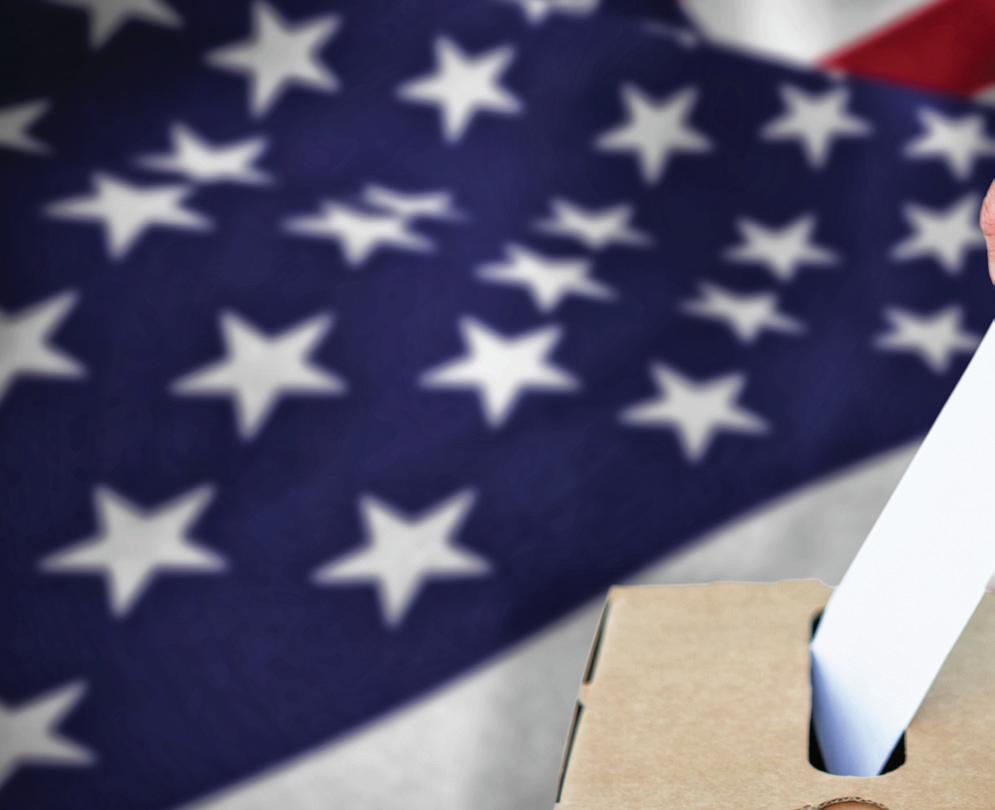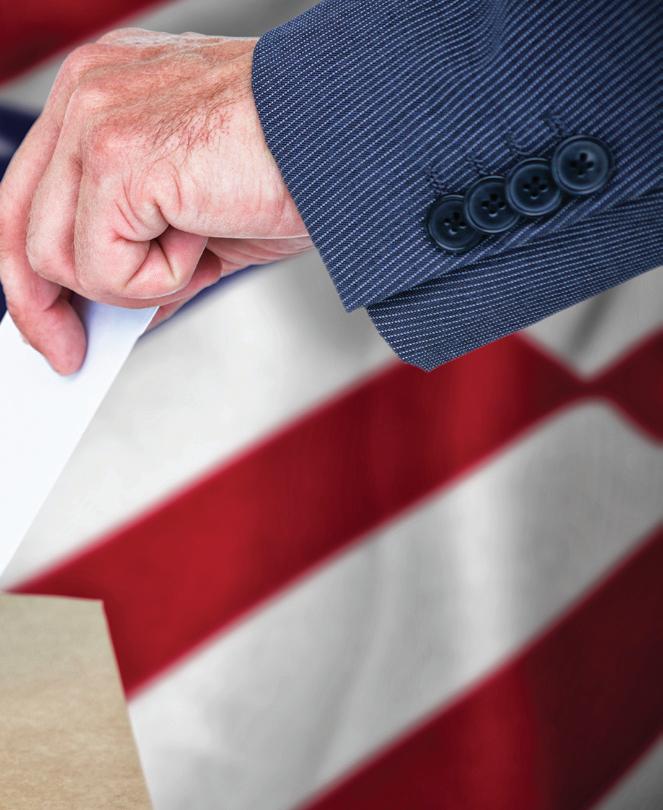
4 minute read
Election 2020: A Small Business Primer for the Presidential Race (and More)
Election 2020: A Small Business Primer for the Presidential Race (and More)

Small businesses have rolled with the punches in 2020 and want to know which candidate is best to have in their corner.
To say that the current business climate is experiencing uncertainty and chaos would be an understatement. That’s why 90 percent of small-business owners are paying very close attention to the 2020 presidential campaign.
This year has been a wild ride, and the only certain factor is change. The platforms of Donald Trump and Joe Biden could both see further tweaking between now and November; if 2020 throws more curveballs at life and business in the United States. But at the moment, here are a few thoughts for small business owners to chew on as they get ready for the election.
Possible Effects of a Biden Win
Political magazine and website, The Hill, forecasts six ways a Biden presidency would impact small businesses. These include health care costs remaining stable, more possible tax obligations for small businesses, continued rise in employment costs, potential benefit for small businesses from more spending on defense and infrastructure, and a general love for entrepreneurs.
The predictions note that health care costs have risen nationally under Trump by six percent to eight 8 percent. Biden supports a modified version of the Affordable Care

Act. The net effect is expected to have no significant fluctuation for health care costs for small businesses.
The tax burden for small businesses could rise, in the event that Biden implements infrastructure and environmental initiatives that need funding.
Biden’s stance on raising the national minimum wage, mandating paid time off, redefining the classification of independent contractors, and giving unions more negotiating power could result in higher employment costs for small business owners.
However, increased spending under a Biden presidency on the military and transportation and utility systems could benefit small businesses, if those businesses are involved in those segments. Biden has stated that he supports relaxing regulations on certain small business occupations and wants to fund local and regional organizations that support entrepreneurs.
However, some believe that the above changes overall in a Biden presidency could be bad for small business.
Continuing Under a Trump Reelection
President Trump is pushing for cuts in the payroll tax, which would reduce the amount taken from employee paychecks to fund federal programs, such as Medicare and Social Security. This would net workers more take-home pay.
The employer-paid portion would also, thus, be reduced, but it won’t be of immediate benefit to businesses that have laid employees off or are still closed due to the pandemic.
In fact, many small business are wary of the plan.
Though the election is not until November, recent executive orders like these to provide coronavirus relief are not an encouraging precedent for small businesses, with economists and experts indicating these economic attempts may have only a muted impact.
That is not to indicate small operators are averse to a Trump victory. Gallup reports that 69 percent of small-business owners say they benefited from the 2017 tax law, and 60 percent approve of the job Trump has done so far as president. Fifty-two percent have confidence that their business will benefit from his reelection.
Coronavirus Credits Outlook
Aside from the presidential race, smallbusiness owners are watching pandemicrelated legal developments closely.
In mid-2020, the IRS introduced three new tax credits designed to aid businesses suffering from economic impacts of the COVID-19 pandemic. However, since it’s safe to say all operators hope this coronavirus climate will come to an end sooner than later, they want to know when these credits end — so they can prepare.
The employee retention credit helps owners keep employees on payroll by allowing a refundable tax credit that is 50 percent of up to $10,000 in wages paid by an eligible employer; under certain conditions.
The paid sick leave credit and family leave credit gives a business a credit for an employee who is not able to work due to a quarantine. Employees may also seek paid family and medical leave equal to twothirds of the employee’s regular pay, up to $200 a day, and $10,000 in total.
For now, credits apply for the period from April 1 through December 30, 2020, but bear in mind that laws and measures instituted this year to help businesses and individuals weather the pandemic change frequently and may be subject to extension as circumstances warrant. For now, plan for the credits to end at the close of the year.
For much more detail about available credits, read here.
Sean Manning, CPA, CFE is partner and CEO of Payroll Vault brands: divisions include Payroll Vault Franchising LLC, the payroll service franchise business system, and Payroll Vault – Littleton, the corporate location and independent payroll service company. He is the former owner of Insperience Business Services, an accounting, tax, and business advisory firm located in Littleton, Colorado, which he sold in August of 2018, subsequent to 3 firm acquisitions from 1998 through 2004. www.payrollvault.com






